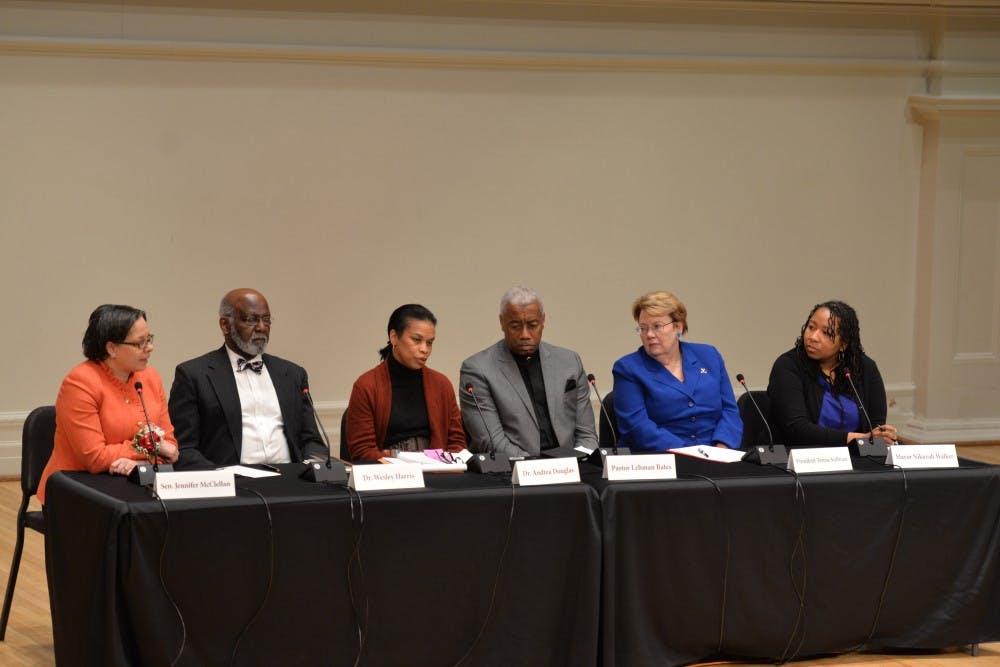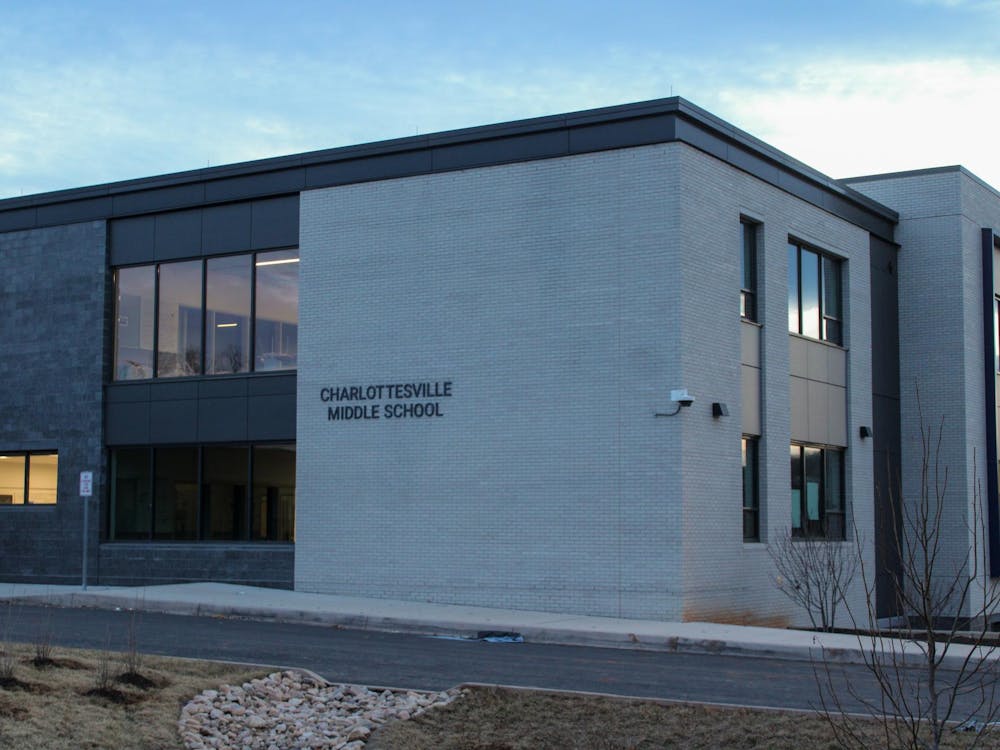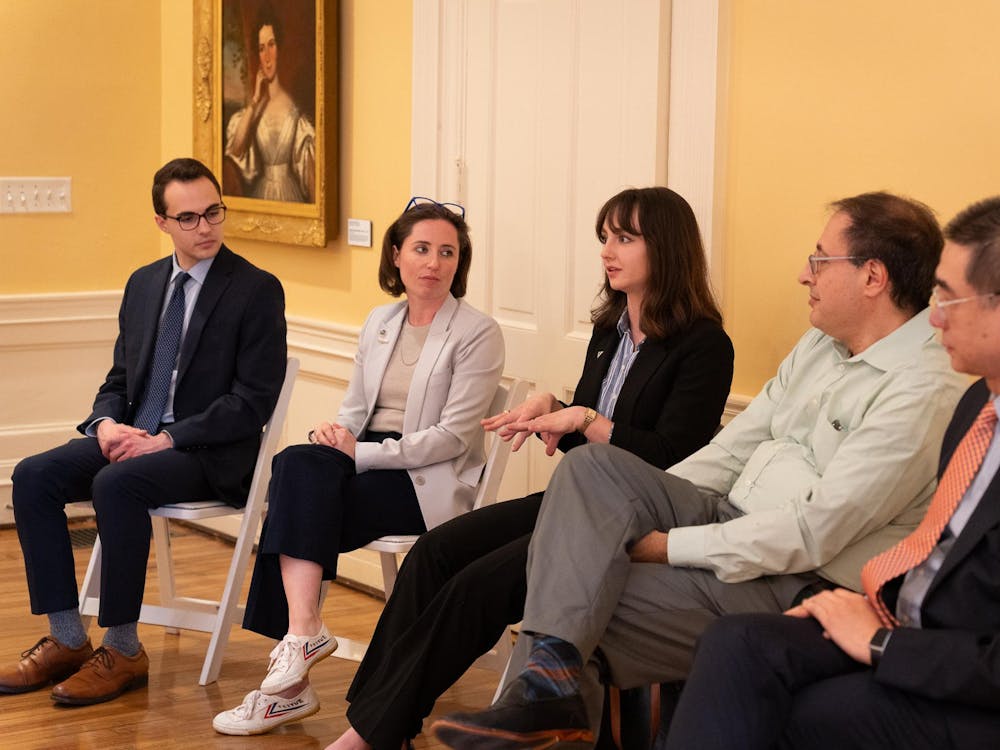The University held a “community conversation” in Old Cabell Hall Tuesday where local community leaders and other speakers reflected upon the legacy of Martin Luther King Jr. in Virginia and at the University and discussed contemporary race relations. The event was hosted by the Office for Diversity and Equity and sponsored by Virginia’s Dr. Martin Luther King Jr. Memorial Commission.
The conversation is the second in a number of events being held around localities in Virginia. It is a part of the Commission's King in Virginia project, which is in the process of researching and compiling information to exhibit King’s visits to Virginia. The purpose of the event was to reflect on King’s vision of a “beloved community” and was centered around contemporary race relation questions of where are we today and where we go from here.
King was invited to speak at the University by the student chapter of the Virginia Council on Human Relations and delivered an address to nearly 900 students, faculty and community members at Old Cabell Hall March 25, 1963.
Dr. Wesley Harris, a class of 1964 graduate of the University’s Engineering School and a member of the Virginia Council on Human Relations who helped arrange the visit by Dr. King to Charlottesville as a student in 1963, recalled his experience of being one of only seven African-American students at the University at the time and described the motivation for the inviting King to the University.
“Unnurtured souls, that was our status,” Harris said.“We needed [King] to nurture our souls, that's why we invited him.”
Harris also spoke on his experience of personally showing King around Grounds in 1963 and described how he attempted to shield King from what he thought was gunfire but was only the sound of a nearby car backfiring. Harris said that he has been asked many times as to why he was willing to sacrifice his own life for King to which he responds, “Why wouldn't I cover him? ... He was America’s greatest advocate for social justice.”
Other speakers at the event included Charlottesville Mayor Nikuyah Walker, University President Teresa Sullivan, Pastor Lehman Bates II of Ebenezer Baptist Church and Dr. Andrea Douglas, the executive director of the Jefferson School African American Heritage Center. Jennifer L. McClellan, a Virginia state Senator and chair of the commission, moderated the panel discussion.
McClellan presented the panel with the question of “Where are we today?” in terms of current race relations and inequality in Virginia and more specifically in Charlottesville.
As each panelist responded to the question, an analogous list of grievances emerged from the panel as a whole. Ignorance, inaction and a strict adherence to normalcy and tradition in Charlottesville in terms of race relations were identified by the panelists as the central obstacles to racial equality.
Sullivan said that there are often deeply embedded social and cultural structures in American society which allow for the deliberate persistence of racial inequality.
“As a sociologist, I could tell you that there are interlocking systems to maintain the status quo in every society and they were forged with particular care and consideration in Southern [American] societies,” Sullivan said. “And it was done intentionally to maintain a caste system after slavery was abolished”.
Sullivan added that this caste system is currently reinforced through the American school system, in which the overall decline of public schools is often blamed on the race of the students rather than the lack of tax money allocated to the schools.
In relation to the local area in particular, Sullivan said the political and legal divide between Albemarle County and the City of Charlottesville has resulted in a racialized lack of affordable housing in the city itself.
“The unusually sharp divide between city and county … provides for a rather unacknowledged form of white flight to exist … and in turn leads to a lot of problems, such as housing affordability,” Sullivan said. “[The city] might as well have a wall built around it, and this wall is called the county.”
Walker said that the problem of racial inequality in the local community cannot be resolved until residents and public officials alike openly confront the realities of racism in Charlottesville.
“We can't eliminate the inequities unless we are willing to face the truth … they have to lead with actions,” Walker said. “So where are we? We are so far from the beloved community, and we need to have authentic conversations and be willing to hold ourselves and others accountable.”
In raising the question of “Where do we go from here?,” McClellan responded to the question herself stating that many in Charlottesville were ignorant to ongoing racism in the city but were made aware by the white nationalist demonstrations of Aug. 11 and 12.
“On top of ignorance we still have racism, that many of us knew never went away, but now the racists have been given permission to speak their truth again,” McClellan said. “We have to not only confront overt racists with the truth, we have to convert ignorance with the full truth … of Virginian and American history.”
Douglas also said that many Charlottesville residents were caught off guard by the blatant racism of Aug. 11 and 12.
“[We need to] remove this notion that, ‘We’re good people. Therefore this can't be happening,’” Douglas said. “We’re all good people, yet this is happening.”
The panelists all agreed that there has been progress in the past 50 years in terms of improving racial equality but also acknowledged that many problems are still ongoing.
“Are we leaving an impact each and every time we step in the room?” Walker said. “Are we willing to sacrifice ourselves to make sure … that 50 years from now the celebration [of MLK Day] is truly a celebration?”







